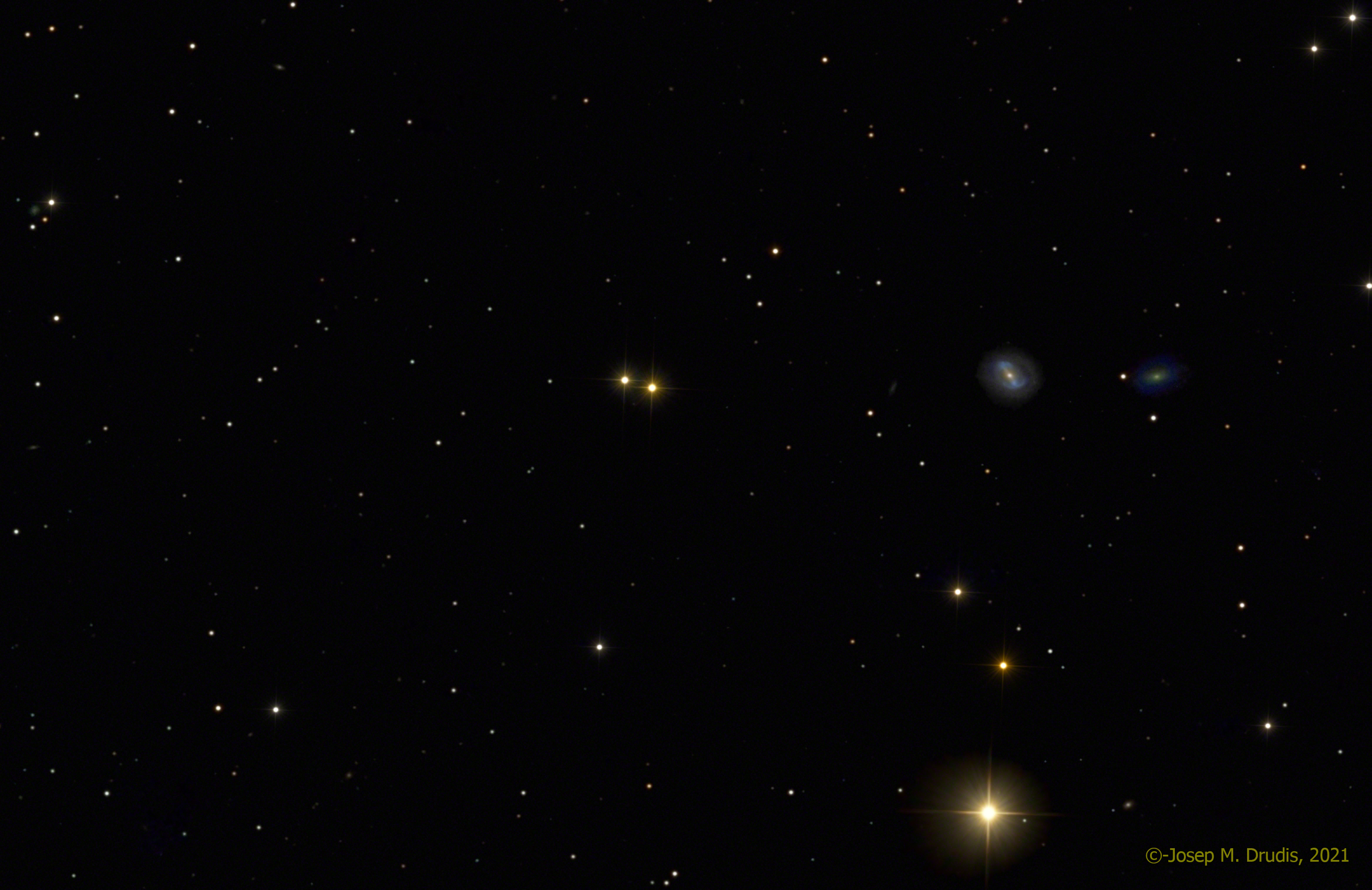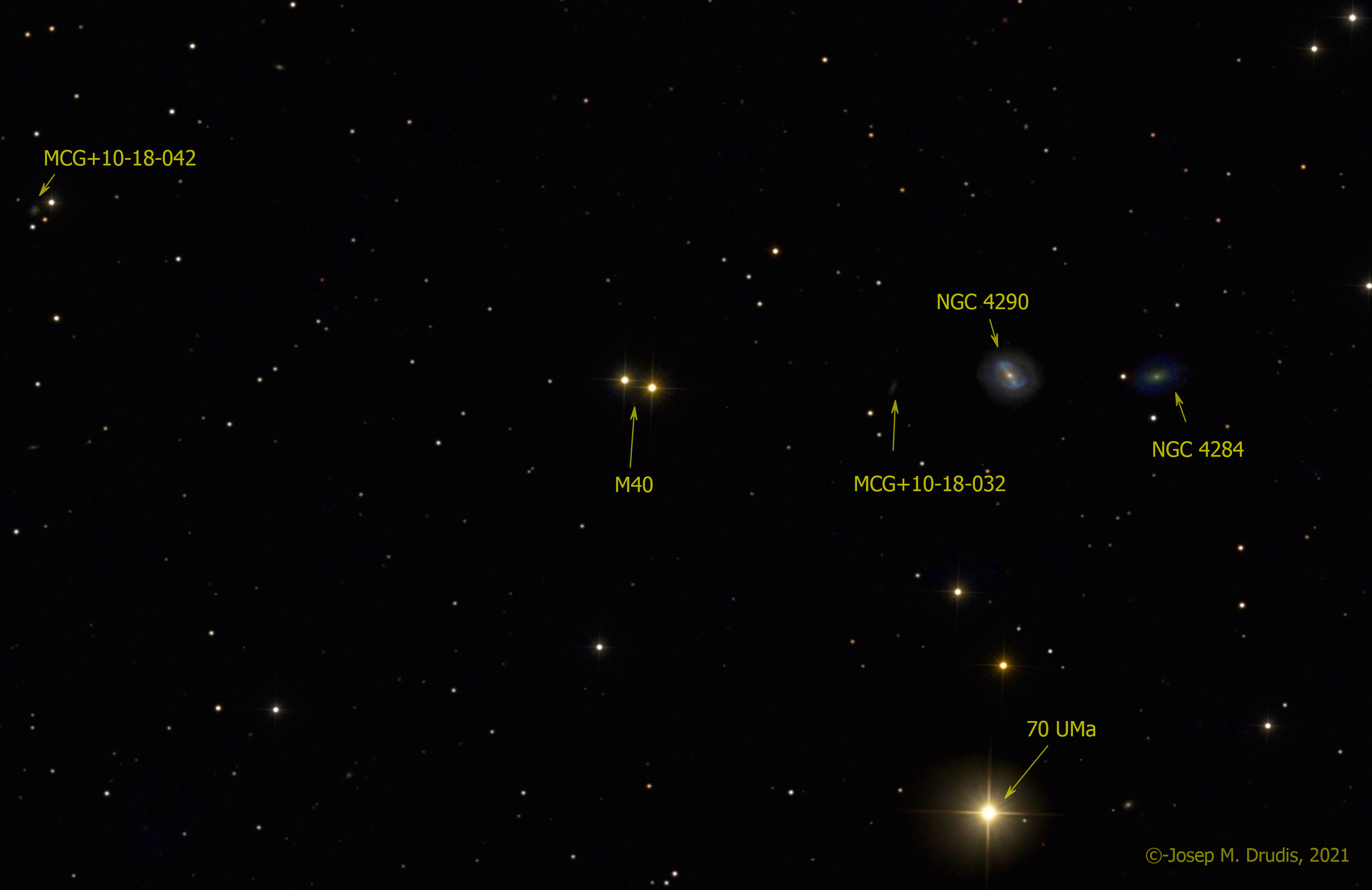Click on the image for a full resolution version
Messier 40 is a double star and not a deep sky object. Charles Messier, in October 1764, was looking for a “nebula” in that region, that had been previously described by Johannes Hevelius (Polish astronomer) about a hundred years before. Apparently, Hevelius referred to the close by galaxy NGC 4290 (see annotated image below). With the telescope used by Messier, this galaxy was not visible and he, instead, assigned the number 40 of his catalog to this double star.
M40 is composed of these two stars: HD 238108, left, mag. 10.10, spectral type G0 V and HD 238107, right, mag. 9.64, spectral type K0 III. This pair is often referred to as Winnecke 4.
Additional Information
Object
Name(s): M40. Winnecke 4
Type: Double Star
RA: 12h 22m 14.3s
Dec: +58º 05’ 10.6”
Constellation: Ursa Major
Size (arcmin): 1.7 arcmin (separation)
Magnitude: +9.65 and 10.10
Distance: 510 ly
Image
Date: 2021-02-22
Location: iTelescope, New Mexico Skies, Mayhill, NM, USA
Size (arcmin): 43×30 arcmin
Telescope: 20” (51 cm) f/4.5 Reflector
Camera: FLI PL11002 (4008x2672pix)
Guiding: Astrodon MonsterMOAG off-axis guider
Total exposure: 3 hours (L: 1 h; RGB: 2 h)
Processing: CCDStack, Photoshop CC 2021

